-
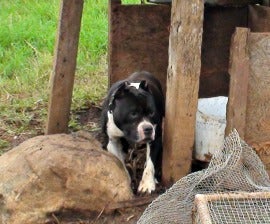
As soon as the rescue team entered the premises, they were confronted with the sad reality of the animals being kept there. HSI/Cynthia Dent
-
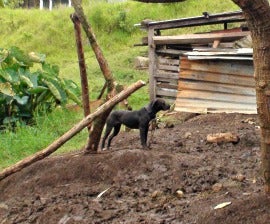
A few animals, such as the one pictured here, doubled as fight/guard dogs. HSI/Cynthia Dent
-
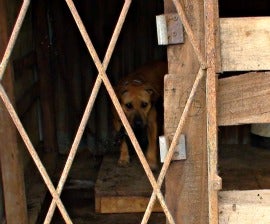
The animals were kept in cramped, makeshift enclosures. HSI/Cynthia Dent
-
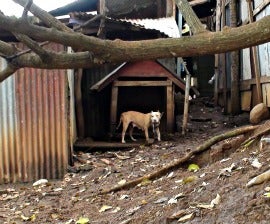
The dogs had to endure unsanitary conditions. HSI/Cynthia Dent
-
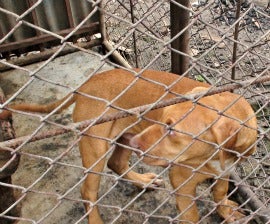
The dogs lacked the most basic care, including access to food and water. HSI/Cynthia Dent
-
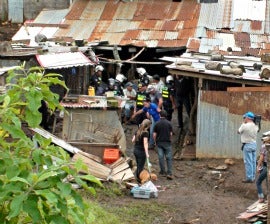
Police officers helped secure the premises during the raid. HSI/Cynthia Dent
-
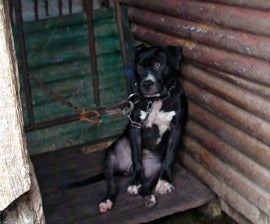
Many of the rescued dogs showed scars and injuries consistent with dog fighting. HSI/Cynthia Dent
-
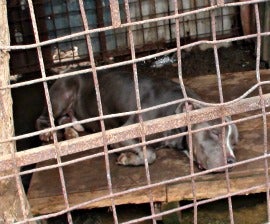
Due to their aggressive behavior, several dogs had to be sedated before they could be moved. HSI/Cynthia Dent
-
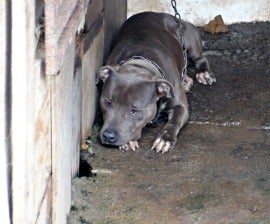
HSI will contribute to the continued care and eventual rehabilitation of the rescued dogs. HSI/Cynthia Dent
Humane Society International’s Latin America office has been working with the Costa Rica government to crack down on illegal dogfighting industry in that country. On October 10, 2012, HSI staff worked with local police and officials to rescue 28 dogs from a breeding facility. The following is a firsthand account by Cynthia Dent, Director of HSI/LA, of the raid:
“When entering the property, we were overwhelmed by the intense smell of ammonia as well as the incessant and desperate barking of nearly 30 dogs. The animals were chained up in filthy makeshift enclosures by an underground breeder, who was allegedly selling dogs into the dogfighting industry.
Among the dogs we rescued were six American Staffordshire puppies, estimated to be about two weeks old. Many other American Staffordshires and two hybrid breeds – Mayday and Barracuda – indicated that the dogfighting industry in Costa Rica has become more complex than was initially thought.
Sadly, the dogs also had scars consistent with fighting. The team found training materials for dog fighting on the premises.
We were there for the entire day, removing the beleaguered and in many cases aggressive dogs from their miserable conditions. We sedated several of the dogs so that we could handle them properly and then relocated them to a safe place.
The animals will be evaluated and hopefully will then start the rehabilitation process, leading to eventual placement with families who can care for them properly.”
This is the most recent effort in HSI/Latin America’s partnership with the Costa Rican government to eradicate this inhumane industry. Earlier this month, HSI trained more than 100 people, including government representatives of the different regions of the country and police officers, on the appropriate handling of these animals and the evidence that should be confiscated at each raid.
HSI/Latin America is partnering with American Stafford Costa Rica to oversee the care and rehabilitation of the confiscated dogs, when possible, which will lead to their placement with carefully selected people who can continue to care for these animals.
Throughout 2012, we have had a success rate of rehabilitating 90 percent of all confiscated dogs.
In conjunction with the trainings, HSI/Latin America has provided equipment to the government and American Stafford Costa Rica to continue investigating this cruel practice and to aid in rescuing these dogs to provide them with an alternate way of life.
And we are working with the government on new legislation which would make the penalties for dogfighting more severe and require jail time for those caught in the act of dogfighting.
